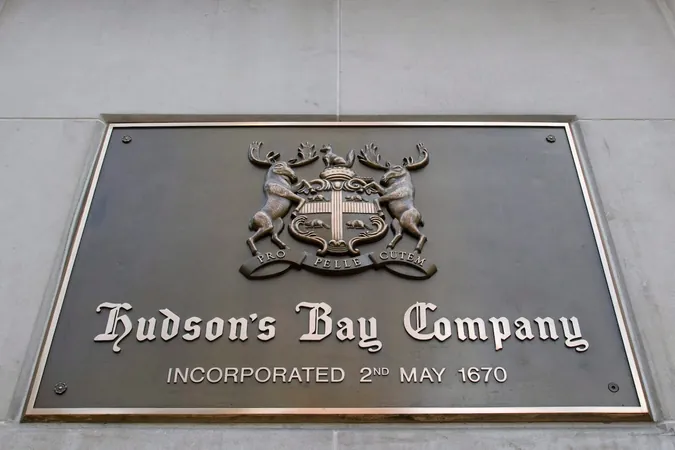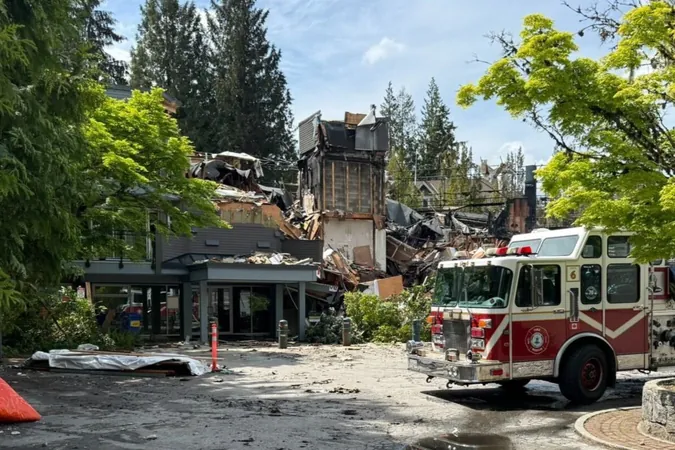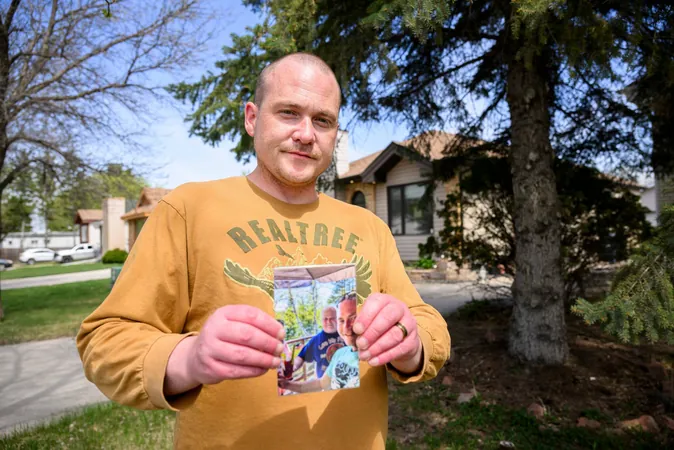
COVID-19 at Five: What Have We Truly Learned?
2025-04-22
Author: Emma
The Unfolding Pandemic Legacy
Five years after the onset of the COVID-19 pandemic, Alberta finds itself once more in the grip of dual outbreaks of respiratory diseases. Recent reports detail a concerning resurgence, including four measles cases in the Edmonton area, and a staggering total of 74 provincewide, compounded by unusually high influenza levels seen earlier this year.
A Question of Learning
Despite a wealth of studies indicating that masks and vaccines are effective in controlling the spread of respiratory viruses, provincial leadership seems to be stumbling. Task forces are now suggesting that mask mandates are unnecessary, and discussions surrounding vaccine safety are raising eyebrows. This raises a critical question: have we gleaned any valuable lessons from the pandemic?
Preparedness for Future Threats
St. Albert Mayor Cathy Heron suggests that the city is in a far better position to respond to future pandemics than it was in 2020. With established emergency response plans for various crises, including pandemics, St. Albert is gearing up for any future health threats.
"We’re ready," Heron asserted, reassured by advancements in medical science. COVID-19 research has dramatically improved our understanding of airborne disease transmission and enabled the swift development of new vaccines.
The Lifesaving Role of Vaccines
Misinformation on vaccines has troubled experts, but research underscores their importance. According to Lynora Saxinger, an infectious disease specialist, vaccines have saved millions of lives, and the COVID vaccine alone prevented nearly 35,000 deaths in Canada between 2021 and 2022, resulting in significant economic savings.
The Efficacy of Masks
Extensive studies, including one co-authored by Joe Vipond, show that masks substantially reduce the transmission of respiratory viruses. Those wearing masks correctly can block up to 98% of viral particles.
Ventilation: An Overlooked Key
Experts like James Talbot emphasize the need for better ventilation systems in schools to protect against respiratory diseases and environmental hazards. Investments in such infrastructure could pay off significantly.
Barriers to Progress
Despite these advancements, misinformation continues to spread and hamper progress. Alberta's initial success in handling COVID was attributed to a robust healthcare response, but the fragmentation of Alberta Health Services raises doubts about the province's current capabilities to manage outbreaks effectively.
Lorian Hardcastle, a health law professor, points out legal changes that could complicate future public health responses, including a ban on municipal mask mandates and potential court challenges against vaccination measures.
Leadership Decisions Under Scrutiny
Critics are voicing concerns over the 2023 decision that delegates pandemic response authority from health professionals to political leaders. Experts argue that pivotal health decisions should remain in the hands of trained medical personnel.
A Descent into Misinformation
Provincial leaders' endorsement of anti-science rhetoric and misinformation threatens the efficacy of the public health strategies that once safeguarded residents. Town halls questioning the safety of COVID vaccines, despite overwhelming evidence to the contrary, exemplify this troubling trend.
Fact-Checking: A Community Responsibility
As we look to the future, experts suggest Albertans take an active role in combating misinformation. Communicating accurate health information and promoting vaccination, masking, and responsible health practices are essential.
A Call for Action
Experts urge for a collective effort towards improving public health literacy. We must ensure that health policy is evidence-based rather than influenced by click-driven narratives. By normalizing safety measures, we can better prepare for the next inevitable public health challenge.









 Brasil (PT)
Brasil (PT)
 Canada (EN)
Canada (EN)
 Chile (ES)
Chile (ES)
 Česko (CS)
Česko (CS)
 대한민국 (KO)
대한민국 (KO)
 España (ES)
España (ES)
 France (FR)
France (FR)
 Hong Kong (EN)
Hong Kong (EN)
 Italia (IT)
Italia (IT)
 日本 (JA)
日本 (JA)
 Magyarország (HU)
Magyarország (HU)
 Norge (NO)
Norge (NO)
 Polska (PL)
Polska (PL)
 Schweiz (DE)
Schweiz (DE)
 Singapore (EN)
Singapore (EN)
 Sverige (SV)
Sverige (SV)
 Suomi (FI)
Suomi (FI)
 Türkiye (TR)
Türkiye (TR)
 الإمارات العربية المتحدة (AR)
الإمارات العربية المتحدة (AR)